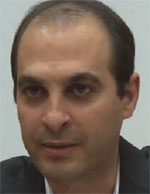
Shabat’s declaration was filed in support of Eddie Head, who is a defendant in proceedings initiated by WorldVentures.

Thus I’ve presented it below, not in its entirety but with minimal editing.
Note that any bold text is on my part to emphasize what I feel are important points (including previously unknown information).
WV’s complaint (against Eddie Head) is rife with false statements and misleading narratives about the historical interactions between Seacret and WV.
I am making this declaration to set the record straight.
The true story begins in 2016, when WV’s CEO Wayne Nugen first approached me about the possibility of starting a business relationship between Seacret and WV.
Nugent and two of Seacret’s executives, Dan Stammen and Eddie Head, flew to Phoenix, Arizona, on a couple of occasions to meet with me to discuss a potential “merger of equals” between our two companies.
THose discussions, while friendly and productive, did not result in an agreement between Seacret and WV at that time.
Several years later in the spring of 2020, I received word through a contact at … Jeunesse that WV might be interested in restarting negotiations with Seacret.
I asked one of Seacret’s field managers, Muzafer Najfi, to reach out to WV.
After receiving an encouraging response from Najfi, I emailed Nugent to followup, and he convened a conference call with me and Head to discuss WV’s interest.
As I learned on that call, WV at that time was experiencing a sharp downturn in its business due to … COVID-19, was struggling to pay commissions to many of its sales representatives, and was trying to find a way to jump-start its sales to avoid a mass exodus of sales representatives and financial collapse.
It was my impression that Nugent viewed Seacret as a potential savior for WV, and he wanted Seacret to establish WV as an affiliate so that WV could refer its members to purchase Seacret products.
Eventually, after a few weeks of back-and-forth negotiations, Seacret and WV entered into a Co-Marketing Agreement (CMA) dated July 22, 2020, which designated WV as an affiliate of Seacret and permitted WV to offer Seacret products under certain terms and conditions.
I led the negotiations over the CMA on behalf of Seacret.
I mostly interacted with Nugent, who told me that he made all of the important business decisions for WV and demanded that his counter-negotiator be the person who made all of the important business decisions for Seacret.
To a lesser extent, I also interacted with Head, who appeared to have been tasked with carrying out Nugent’s business decisions and circulating the various drafts of the CMA.
During the negotiations over the CMA, Nugent and I had a number of candid discussions about Seacret’s long-standing interest in establishing its own travel membership program.
At one point Nugent even suggested that when the global travel industry had recovered from the pandemic, the parties should consider expanding their business relationship so that WV could fulfill the travel benefits sold by Seacret’s agent.
While the parties did not enter into an agreement covering travel, we did include a provision in the CMA that contemplated a later agreement on that topic.
Several months after the CMA was executed but only a few weeks after WV began offering Seacret products to its members, I started hearing rumors that WV’s financial condition was continuing to deteroriate.
It was also evident from Seacret’s sales data that WV’s sales representatives were not motivated to sell the Seacret products that were offered under the CMA.
Around the same time, Najfi informed me that he had been contacted by WV’s President Bo Short to arrange a conference call with me, Short, and WV’s COO Michael Poates.
During that call, which occurred on October 1, 2020, Poates told me that WV’s financial condition was so poor that it would not be able to operate for much longer and was considering filing for bankruptcy.
Poates also told me that he and Short intended to sideline Nuguent (by threatening a criminal referral), fire Head and most of his sales team, and take control of WV.
A criminal referral is
a notice to a prosecutory body, recommending criminal investigation or prosecution of one or more entities for crimes which fall into that body’s jurisdiction.
If Wayne Nugent has committed crimes pertaining to WorldVentures, alleged or otherwise, I’m unaware of them.

As far as I know there also hasn’t been any criminal conduct alleged in WorldVentures’ bankruptcy proceedings.
Back to Shabat’s declaration;
Poates then offered to facilitate the sale of WV to Seacret for $15 million.
In exchange, Poates and Short wanted me to agree to give them and other WV executives 49% of the shares of the combined company.
Needless to say, I was surprised and deeply concerned by the news of the potential bankruptcy, the planned “takeover”, and the extent of Poates’ and Short’s self-dealing.
I ended the call by declining their offer and resolved to communicate directly with Nugent, as the owner and CEO of WV, about the issues raised by Poates and Short.
On or about October 7, 2020, I sent an email to Nugent, Poates, and Head expressing my concerns about a potential bankruptcy and suggesting that Seacret and WV agree to terminate the CMA.
Before sending my email, I spoke with Poates and Short to give them notice and an opportunity to comment on my planned communication.
Short was adamant that the communication not be focused on the potential bankruptcy, but on lackluster sales – otherwise, he said, Nugent and Head “would feel no responsibility.”
I then texted and called Head to ask for confirmation of the potential bankruptcy.
Head appeared to be surprised by my question and denied having any knowledge of a potential bankruptcy.
He asked me to wait 24 hours so he could discuss the issue with Nugent and schedule a follow-up call.
In my follow-up conversation with Nugent and Head, Nugent strongly denied that WV was considering filing for bankruptcy, but he conceded that WV was in a precarious financial condition.
He also told me he wanted to explore a different kind of partnership that would allow WV to keep operating while at the same time benefiting Seacret.
At a later point, I also told Nugent about Poates and Short’s scheme to take control of WV.
Nugent fired Short after receiving my information but kept Poates on board because Nugent said he felt Poates could be “managed”.
In the numerous discussions that followed between Nugent and me … Nugent convinced me that the answer to WV’s problems was not to terminate the CMA … but to double down on our business relationship and consider a “merger” of the two companies.
Nugent was strongly pushing for an agreement as soon as possible because WV’s sales representatives had not been paid the commissions they had earned for months and were voicing their intent to leave the company.
As I discovered later, WV’s failure to pay its sales representatives was a problem of its own making.
Poates told me that WV had fund to pay sales representatives, but chose to pay other creditors instead because of concerns over an involuntary bankruptcy filing.
Shockingly, I later learned that WV apparently did have the funds to pay Poates, Paul Jenkins (WV’s Chief Technology Officer), and Eric Haynes (WV’s Chief Legal Officer) bonuses totaling almost $750,000 in August and November of 2020.
By late October 2020, WV’s bankruptcy seemed inevitable despite Nugent’s earlier denials.
In a discussion presided over by Nugent, me, and our respective attorneys, the parties agreed on a two-step process where they would first enter into a solicitation agreement to try to stabilize the sales force and then Seacret would enter into a letter of intent that would be the basis of a “stalking horse” offer for WV’s assets in the future bankruptcy.
Around this time, and at Nugent’s urging, Nugent and I made several presentations to WV’s leading sales representatives about the proposed combination.
These presentations were intended to instill confidence that agents had products to sell on which they would be paid commissions and that WV had a viable path forward, even though these representatives had not been paid by WV in months.
Importantly, during those presentations, Nugent and I repeatedly represented what WV’s sales leaders were demanding as a precondition of staying with WV: that Seacret would launch its own travel membership program and, as part of this launch, planned to integrate WV’s “Dream Trips” and “You Should Be Here” travel programs after the combination.
From late October to early November 2020, attorneys for WV and Seacret negotiated the terms of a Limited Solicitation Agreement dated November 11, 2020 and a letter of intent to purchase WV’s assets out of bankruptcy (LOI).
As negotiations were underway, Shabat claims Poates and Haynes were kept abreast of the negotiations
and were urging Nugent to sign and return it to Seacret as soon as possible.
Shabat claims this alleged fact is “in start contrast to WV’s current allegations in the Complaint of a “conspiracy” led by Head.
On or about November 11, 2020, Nugent (on behalf of WV) and I (on behalf of Seacret) signed the LSA and LOI.
Executed copies of both agreements were immediately circulated to all parties and their counsel. No one objected at that time.
To the contrary, the agreement was celebrated.
Around (November 14, 2020), I became aware that WV was executing a workforce reeducation that included multiple high-level employees.
As part of this process, Nugent contacted me and asked me to consider hiring some of WV’s employees to assist in the transition to Seacret and so that they could be removed from WV”s struggling payroll. Poates also made the same request.
For example, on a call with me on November 17, 2020, Poates repeatedly requested that Seacret hire several WV employees in order to help avoid costly severance payments and WARN Act issues.
Further, Poates told me that WV would provide a list of employees to be released for Seacret to hire.
The following day, Haynes did send an email to Seacret’s outside counsel formally approving Seacret’s recruitment of certain WV employees and confirming that WV was “waiving” ant anti-solicitation rights it might have with respect to those employees under Sec 1.5 of the LSA.
The “waiver” covered ten current WV employees (including Eddie Head and Justin Call) and three former WV employees.
Nugent and Poates were copied on the email, and Poates responded with “Thank you!”
Interestingly, Haynes (who, as WV’s Chief Legal Officer, is the person in charge of interpreting and enforcing WV’s employee rights) himself applied for a job at Seacret in late October 2020.
Following the public announcement of the LSA, and throughout November and into December 2020, WV and Seacret negotiated the terms and conditions of an asset purchase agreement (APA) that would be presented in WV’s imminent bankruptcy as a “stalking horse” bid for WV’s assets.
WV’s bankruptcy counsel, along with Seacret’s outside counsel, drafted the APA.
During that time, and as expressly authorized by the LSA, Seacret began registering WV sales representatives as Seacret agents so that they could begin selling Seacret products and services and receive commissions for these sales directly from Seacret.
Under the LSA, WV is entitled to receive a royalty from Seacret based on the gross amount of these sales.
Seacret has paid $747,835.30 in royalties to WV to date and $701,438.35 in royalties since WV filed for bankruptcy.
WV continues to receive and accept the royalties paid by Seacret.
As the two sides were going back and forth trying to finalize the APA, Poates called me and urged me to consider including Rovia in Seacret’s offer.
Poates also represented to me that if Seacret offered to give him and several other current WV executives an ownership stake in Rovia, he would make sure that a sale of Rovia would be consummated.
He also reiterated his plan to push Nugent out of the company.
Several days later on December 12, 2020, I called Poates and recorded the call.
Poates repeated this proposal, including volunteering that he had “pre-borrowed” $1 million to invest in the transaction and that Rovia’s “stock will sky rocket” after closing.
I did not agree to Poates’ scheme, and Seacret did not include Rovia in its purchase offer at that time.
On or about December 21, 2020, WV filed for bankruptcy.
On or about December 30, 2020, I received a call from Head, who informed me that he had been forced to resign from WV.
Michael Poates publicly announced Eddie Head was leaving WV in the first week of January.
Poates framed Head’s “forced resignation” as a “personal decision”.
While I had always anticipated Head — along with Nugent and several other WV employees — would eventually join Seacret as part of the transition contemplated by the LSA and LOI, I had not previously had a discussion with Head about his employment at Seacret.
During our call, and as expressly permitted by WV back in November 2020, I offered a job to Head, although we did not discuss his position or job responsibilities in detail.
I had gotten to know Head over the previous few months, thought highly of him, and knew that his professional skills and experience would be a good fit for Seacret.
When Head officially joined Seacret in early January 2021, I assigned him to work on project development, especially with respect to the development of new marketing and sales tools, hiring and grooming a new executive team to support Seacret’s growing business, including a chief legal officer and sales leaders in Europe, Central America, and South America, supporting the opening of Seacret’s Hong Kong business, and developing a project management team and business practices to support enterprise-level demands.
After Seacret’s Chief Strategy Officer Tyler Williams left the company on or about January 20, 2021, I asked Head to take his place on a temporary basis.
Head now holds the title of President.
Contrary to WV’s allegations in its Complaint, Seacret did not hire Head to create or launch a new travel membership program because at that time I was still under the impression that WV intended to honor its commitment to collaborate with Seacret on the integrated travel membership program envisaged by the LSA and LOI.
Head is not responsible for the overall performance of Seacret and has no role in product development.
Since joining Seacret, Head has never had any duties or oversight regarding any travel benefits offered by Seacret and has not been involved in the development of a travel membership program.
Moreover, Head has never disclosed to me (or anyone else at Seacret) any of the confidential or proprietary information now claimed by WV.
To the extent Seacret is in possession of any of the confidential or proprietary information now claimed by WV, Seacret obtained that information directly from WV as a result of the performance of the CMA and LSA.
Shortly after the bankruptcy was filed, WV inexplicably dropped Seacret’s purchase offer despite the fact that the APA had been finalized and was ready to present to the Court once the disclosure schedules were prepared.
WV also suspended Seacret’s access to the data room that had been set up for parties interest in bidding on WV’s assets on the pretext that Seacret did not have a nondisclosure agreement (although the LOI included confidentiality provisions and Seacret had been provided information under those provisions for weeks), and WV thereafter refused to negotiate a nondisclosure agreement.
In other words, WV cut Seacret off from the bidding process and denied its access to the data it needed to improve its bid.
At the same time, WV shared the confidential LOI between Seacret and WV with other potential bidders, presumably in order to entice them to make an offer.
Finally, on or about January 28, 2021, WV sent out a notice to its sales representatives stating that there would be no merger between WV and Seacret and that WV would only allow its sales representatives to sell Seacret products, as outlined in the LSA, until such time as the global travel industry rebounded.
Shabat finishes up his declaration with the surprising admission that former WV Dan Stammen is poised to return.
On or about February 26, 2021, Dan Stammen, a former President of WV, hosted a Zoom call with various Seacret and WV sales representatives.
On this call, a recording of which I have viewed, Stammen made numerous disparaging comments about Seacret and presaged the exact litigation that WV filed against Seacret a week later.
Stammen also told the attendees that he was coming back to WV as CEO and that he had a deal to take the company out of bankruptcy.
When asked who would be staying at WV in connection with this deal, Stammen replied that Michael Poates, Eric Haynes and Paul Jenkins would run the business.

At the time of publication I haven’t heard anything out of WorldVentures signalling Nugent’s departure or Dan Stammen’s executive return.
Stammen is a co-owner of Spherature Investments, WorldVentures’ parent company.
As per public bankruptcy filings, as of December 2020 WorldVentures owed Stammen $1.7 million dollars.
The court has yet to issue a ruling on WorldVentures’ motion for a preliminary injunction against Eddie Head.
Separately, WorldVentures has also filed suit against Seacret Direct.
Update 28th March 2021 – Izhak Shabat’s declaration is one of five in support of Eddie Head.
I’ve gone over claims made in all five declarations in a separate article.
Update 14th April 2021 – WorldVentures has secured a preliminary injunction against Eddie Head.